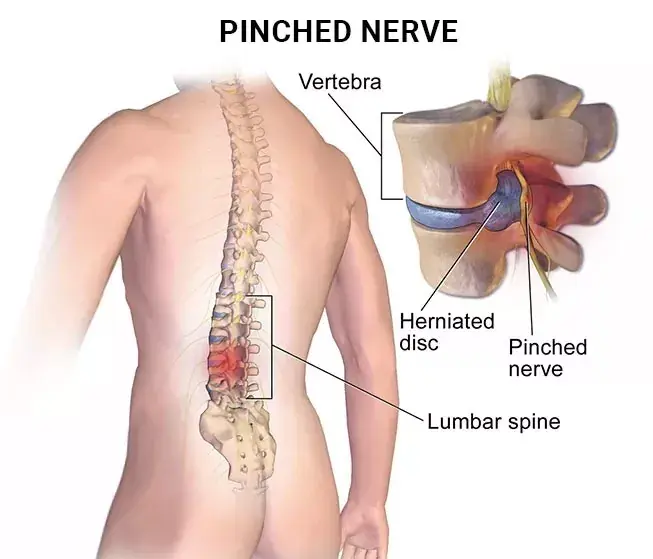Understanding Pinched Nerves: What Every Patient Should Know
- Dr. Jill Evans

- Jul 10, 2025
- 3 min read

As a chiropractor, I see patients with "pinched nerves" almost daily. It's one of the most common complaints that walk through my office door, and for good reason – nerve compression can significantly impact your quality of life. Let me explain what's really happening in your body when you experience these symptoms.
What's Actually Happening?
When patients tell me they have a "pinched nerve," I explain that while the term is widely used, what we're actually dealing with is nerve compression or impingement. Your spinal nerves exit through small openings between your vertebrae, and when these spaces become narrowed or when surrounding tissues become inflamed, pressure builds on the nerve.
It's more like stepping on a garden hose – the water (or in this case, nerve signals) can't flow properly, causing dysfunction downstream. Your nervous system is remarkably sophisticated, controlling everything from muscle movement to sensation, so when compression occurs, the effects can be far-reaching.
What You Might Experience
Through years of treating patients with nerve compression, I've observed several consistent patterns of symptoms:
Radiating Pain: This is often the first sign patients notice. The pain typically follows the path of the affected nerve – for example, a compressed nerve in your neck might cause pain that travels down your arm to your fingertips.
Numbness and Tingling: Many of my patients describe this as their arm or leg "falling asleep" and not waking up. This occurs because the nerve's ability to transmit sensory information is compromised.
Muscle Weakness: You might notice difficulty gripping objects, lifting your arm, or walking normally. This happens because the motor signals from your brain can't reach your muscles effectively.
Changes in Reflexes: During examination, I often find that reflexes are diminished or absent in areas supplied by the compressed nerve.
Common Areas I Treat
Cervical Spine (Neck): Herniated discs, bone spurs, or muscle tension in the neck can compress nerves that supply your arms and hands. I frequently see this in patients who work at computers or have experienced whiplash.
Lumbar Spine (Lower Back): Sciatica is perhaps the most well-known example. When nerves in your lower back become compressed, pain can radiate down your buttock and leg, sometimes reaching your toes.
Thoracic Outlet: Though less common, compression here can affect nerves traveling to your arms, often related to postural issues or repetitive overhead activities.
My Approach to Treatment
As a chiropractor, I focus on addressing the root cause of nerve compression rather than just masking symptoms. My treatment typically includes:
Spinal Adjustments: Gentle manipulations to restore proper alignment and reduce pressure on compressed nerves. These adjustments can help restore normal joint function and reduce inflammation.
Soft Tissue Therapy: Tight muscles and inflamed tissues often contribute to nerve compression. I use various techniques to release tension and improve circulation to the affected area.
Postural Correction: Poor posture is a major contributor to nerve compression. I work with patients to identify and correct postural habits that may be causing or aggravating their condition.
Exercise and Rehabilitation: Specific exercises can help strengthen supporting muscles and improve flexibility, reducing the likelihood of future compression.
What I See in Practice
Most of my patients with nerve compression respond well to conservative chiropractic care. However, I always emphasize that early intervention is key. Patients who seek treatment within the first few weeks of symptom onset typically recover faster and more completely than those who wait months or years.
I also notice that patients who actively participate in their recovery, following through with prescribed exercises and making necessary lifestyle modifications, achieve better long-term results.
When to Seek Immediate Care
While I successfully treat many cases of nerve compression, I always advise patients to seek immediate medical attention if they experience:
Sudden onset of severe weakness
Loss of bowel or bladder control
Progressive numbness in the saddle area
Symptoms that worsen rapidly despite treatment
Prevention is Key
In my experience, many cases of nerve compression are preventable. I regularly educate my patients about proper ergonomics, the importance of regular movement, and maintaining good spinal health through proper posture and exercise.
Your spine and nervous system are designed to last a lifetime, but they require proper care and attention. As your chiropractor, my goal is not just to treat your current symptoms, but to help you maintain optimal spinal health for years to come.






Comments